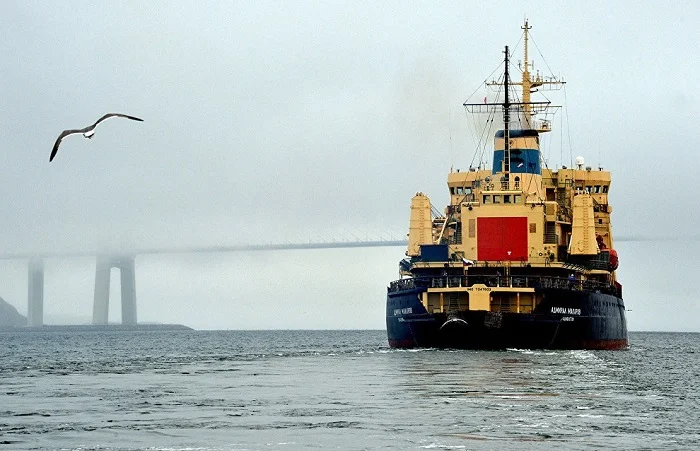India's interest in collaborating with Russia on the Northern Sea Route could receive a major boost with Moscow planning to ensure a year-round navigation of its commercial fleet along the entire length of the Northern Sea Route to rapidly develop the Asia-Pacific market.
As the European Union announced a fifth package of restrictive measures to ramp up economic pressure on the Kremlin – including a ban on import of all forms of Russian coal from August – the Vladimir Putin government said that it sees this as an opportunity to redirect coal exports from Europe to the Asia-Pacific region.
Russian state-owned domestic news agency RIA Novosti reported on Saturday that the importance of the development of Arctic maritime navigation for the Russian Federation, especially in its eastern direction, will only increase in the near future.
"The plans are to ensure year-round navigation of the commercial fleet along the entire length of the NSR route. This is primarily due to the rapid development of the Asia-Pacific market, which is becoming a driver of global economic growth," the agency quoted Nikolai Korchunov, Ambassador-at-Large of the Russian Foreign Ministry and also Chairman of the Committee of Senior Officials of the Arctic Council, as saying.
As reported by IndiaNarrative.com extensively, the utilization of the Northern Sea Route would also strengthen India-Russia partnership, especially when it comes to energy supplies.
India has already expressed its readiness to play an active role as an Observer in the Arctic Council under the ongoing Russian chairmanship.
Meanwhile, Russia has said that the decision of the European Union to ban import on all forms of Russian coal from August could majorly rebound and affect its own members instead of hitting Moscow hard.
The fifth package of restrictive measures announced by the EU includes six elements – coal ban, financial measures, transport, targeted export bans, extending import bans and excluding Russia from public contracts and European money.
The EU, which is Russia's biggest coal trading partner representing one fourth of total Russian exports, believes the import ban will result in around €8 billion loss of revenue per year for Russia. It said that there will be a wind-down period of four months for existing contracts.

(Image courtesy: Instagram/Ruscoal_co)
However, the Russian Ministry of Energy has shot back, saying that the measures calibrated to affect its economy could trigger a crisis in Europe instead.
"Decisions of countries to abandon Russian coal will have a tangible impact, first of all, on themselves. It will be quite problematic to replace our coal at once, taking into account its quality characteristics. Therefore, the transition will be at least extended in time, moreover, the coal itself will be much more expensive due to logistics," said Russia's Energy Minister Nikolai Shulginov on his ministry's Telegram channel.
Shulginov also confirmed that the products of the Russian coal companies will be reoriented to alternative markets in future.
Also Read: India and Russia toast breakthrough as first gas shipment passes through icy Northern Sea Route




















